Taking Our Own Advice: How We're Building Rulo with AI
How we built a fully working mobile and web app in two months using AI tools
We've spent a lot of time talking about how AI is changing what it means to build, and how it gives small teams an unfair advantage to ship things that would have taken months or even years. So this week, we decided to do less talking and more showing.
Make sure that you stick around until the end of this week's newsletter, because we'll share the complete AI tech stack that we are using – it could end up completely changing how you and your team work.
Rulo – The Social Coordination App
We've been working on our own app, Rulo, which sits somewhere between Partiful and Slack — built for groups that organize around skill.
We often tell our clients to start small and very specific with new products, so that's exactly what we're doing with Rulo. Since we both grew up playing racket sports, we're bringing Rulo to market through an up-and-coming racket sport called padel, which happens to be the fastest-growing sport in the world right now (and genuinely fun). People are pouring money into new clubs, courts, and infrastructure, but the digital layer is lagging.
Padel is a coordination problem disguised as a sport: you need four players of roughly equal levels, yet every group chat turns into chaos with mismatched players, endless pings, and cancellations. Rulo solves that by bringing coordination, communication, and event organization into one structured space.
Just this week, we hosted our first event on Rulo, so it felt like the right time to show how we actually built it (entirely with AI tools).
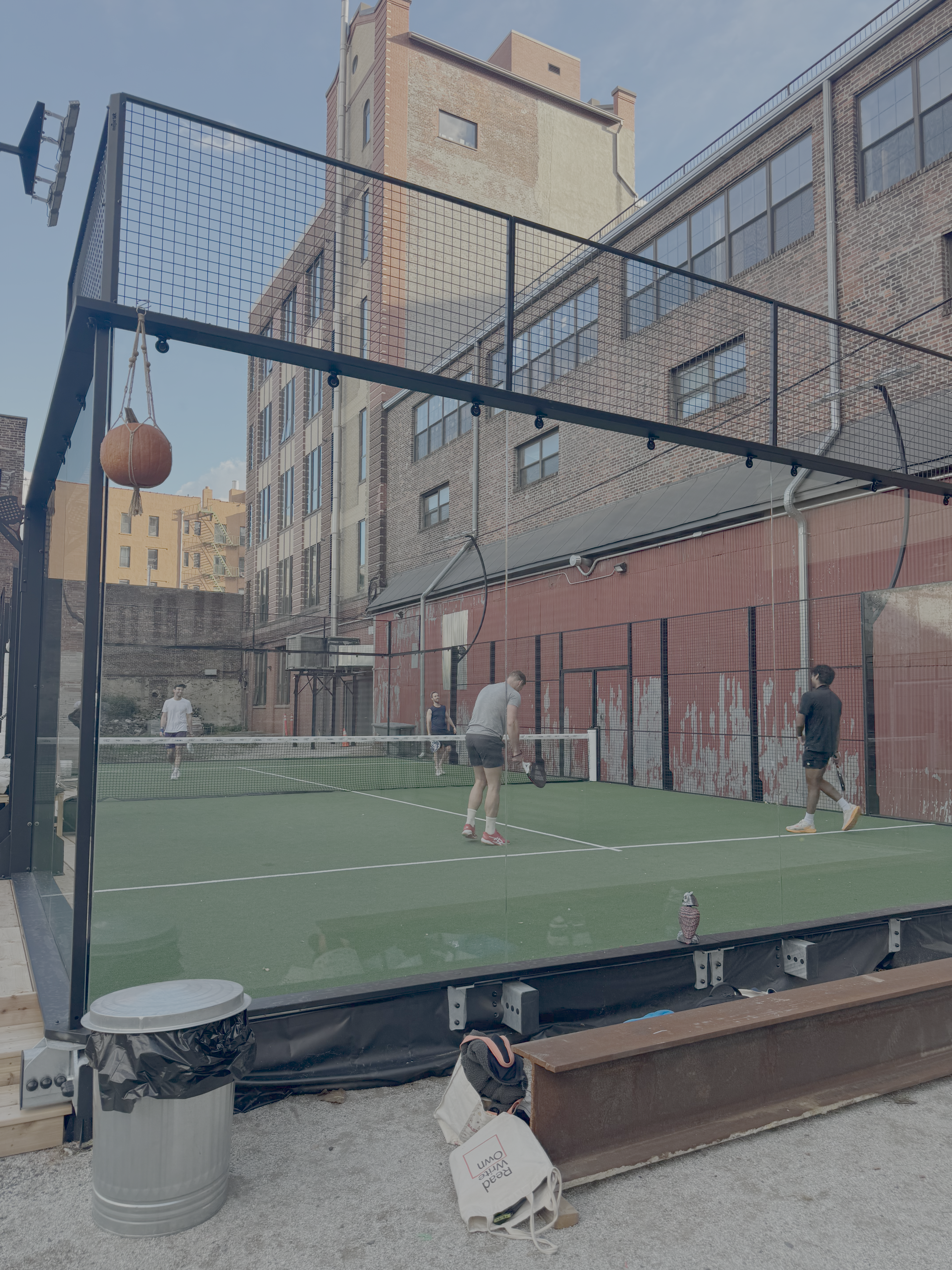
Feature 1: Spaces and Roles
Each group in Rulo (a Space) runs on a roles and permissions system that makes coordination scalable. Roles like Admin, Member, or Organizer define what actions users can take — creating events, managing members, or sending announcements. This gives admins precise control over visibility and reduces noise by ensuring people only see what's relevant.
We built it entirely with Claude Code, prompting it to generate the schema and access-control logic:
"Create a roles and permissions model where each Space has multiple role types with defined capabilities and cascading permissions."
From that, Claude produced the database schema and middleware, which we reviewed and refined through quick natural-language iterations. The result is a flexible system that keeps large groups organized without manual micromanagement.
Here's what some of the app screens look like:
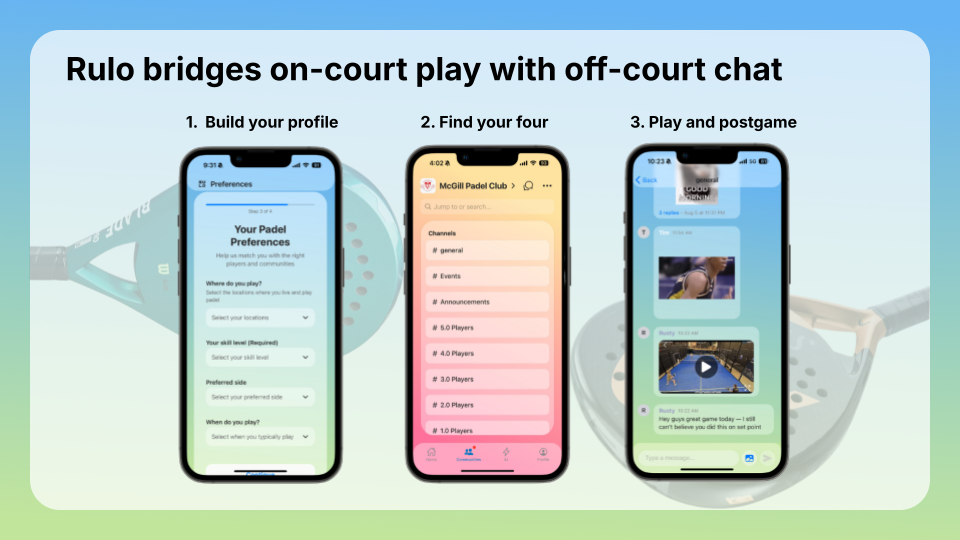
Feature 2: Shared Backend Across Web and Mobile
Rulo runs on two separate frontends (web and mobile) connected to a shared backend built on Supabase. This keeps data synchronized in real time: update your skill level on web, and it instantly reflects on mobile; send a chat on iOS, and it appears in the browser immediately.
We integrated Supabase with Claude Code through a custom Claude MCP connection, allowing us to generate and modify backend logic directly from natural-language prompts. This setup lets Claude update database schemas, API routes, and access rules seamlessly without manual handoff. The result is a fast, consistent build pipeline that lets us move quickly across platforms while maintaining stability.
Feature 3: Events and Payments
Friend groups and college clubs trying to organize padel matches spend too much time juggling tools for scheduling, sign-ups, and payments. Rulo combines them into one system. Using payrails with Stripe integration, organizers can create and manage events directly inside their group space.
This allows group organizers to post public event links to their community and on their socials, while also providing regular programming for their members.
.png)
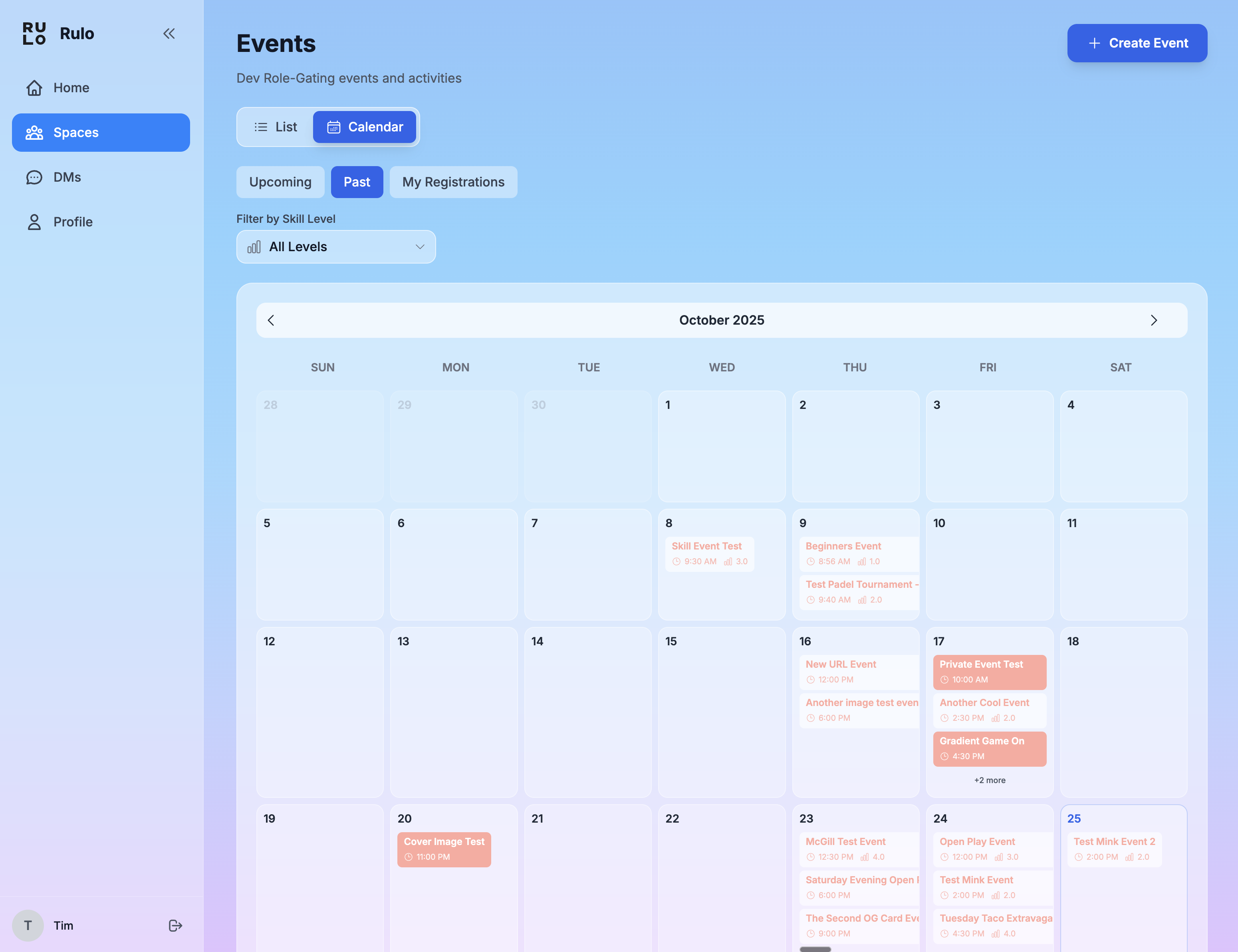
Yes, It Actually Works
Just last week, we ran our own padel event at the newly opened Mink Padel club where every participant registered (and paid) through Rulo! We also launched Rulo with McGill University's Padel club in Montreal, and within 2 hours they had sold out their first event on Rulo:
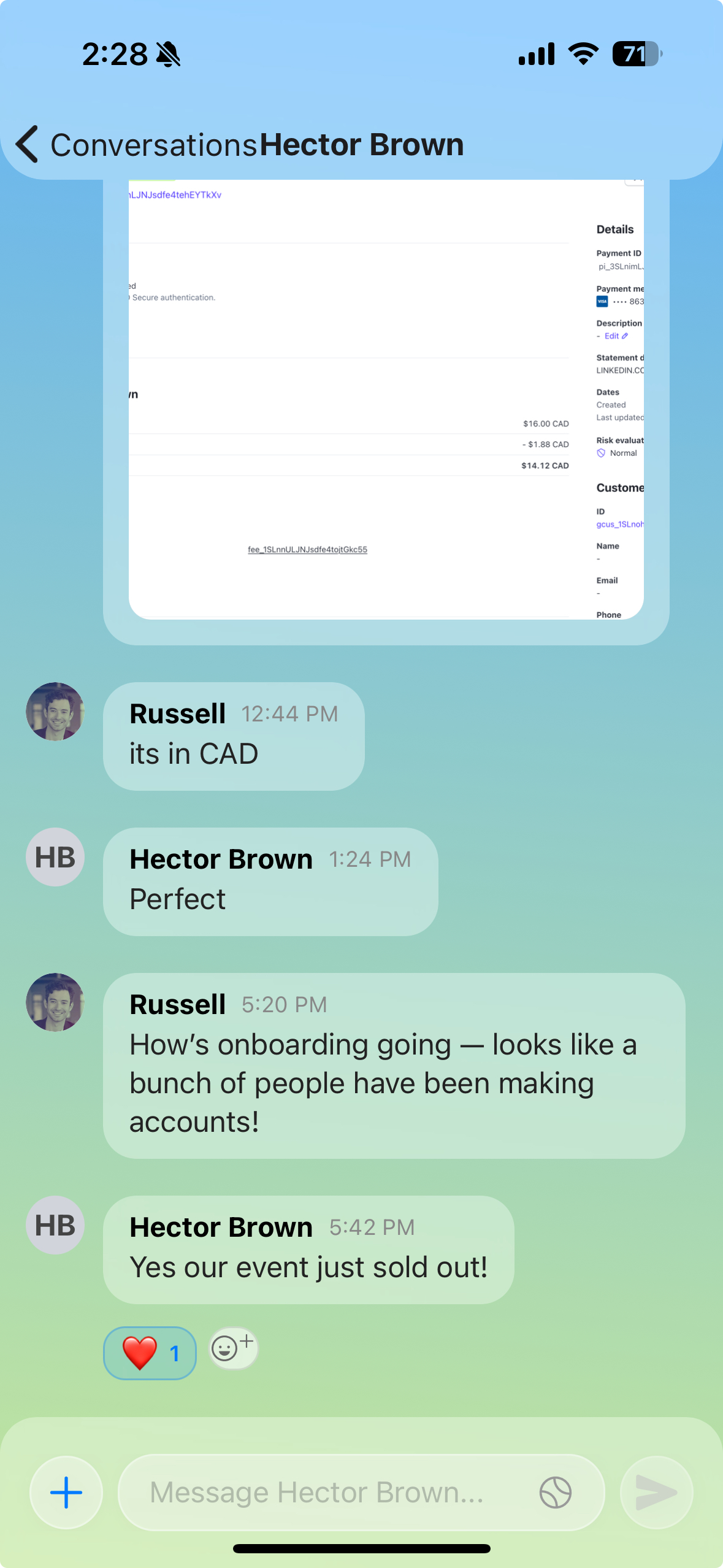
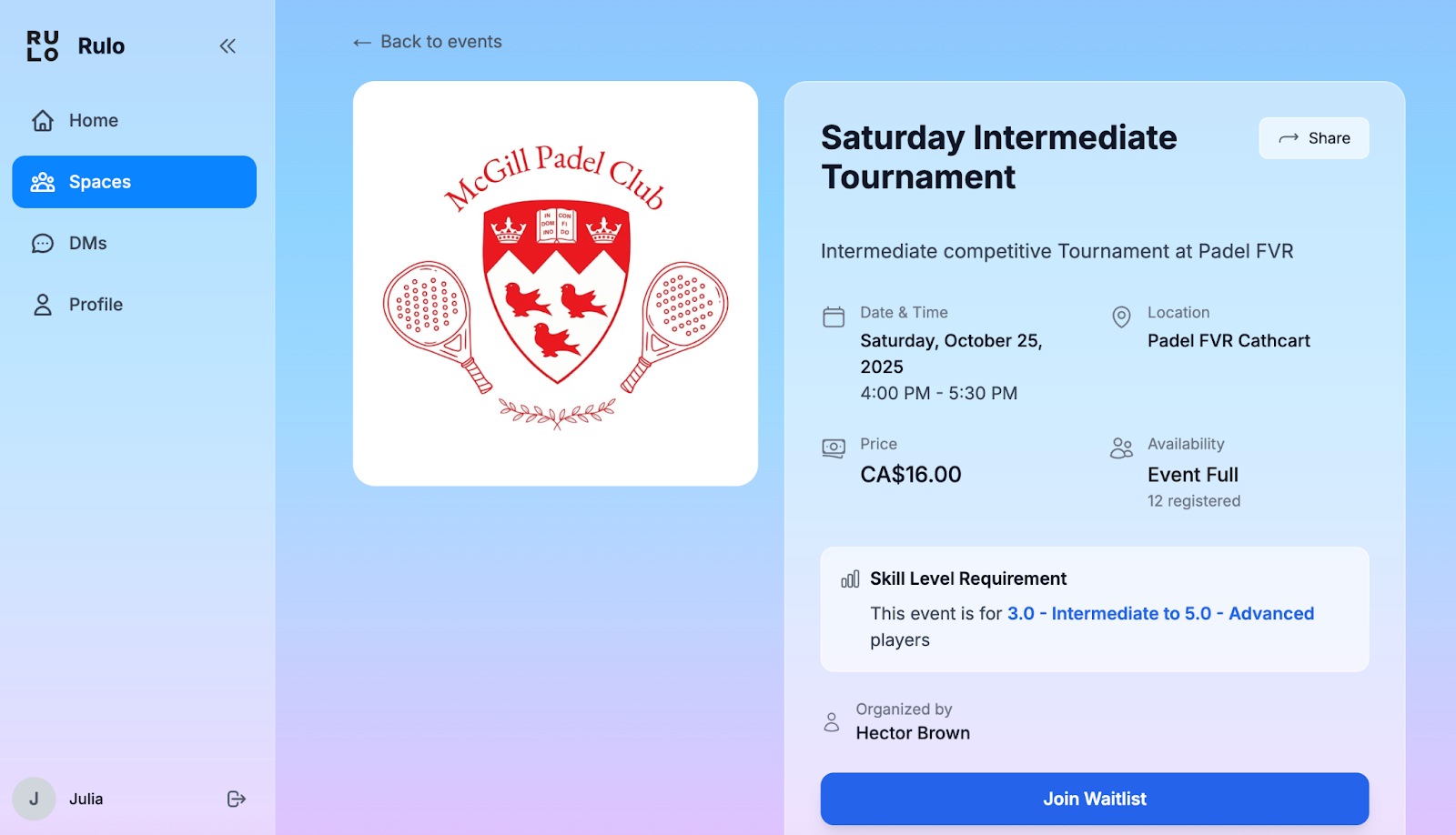
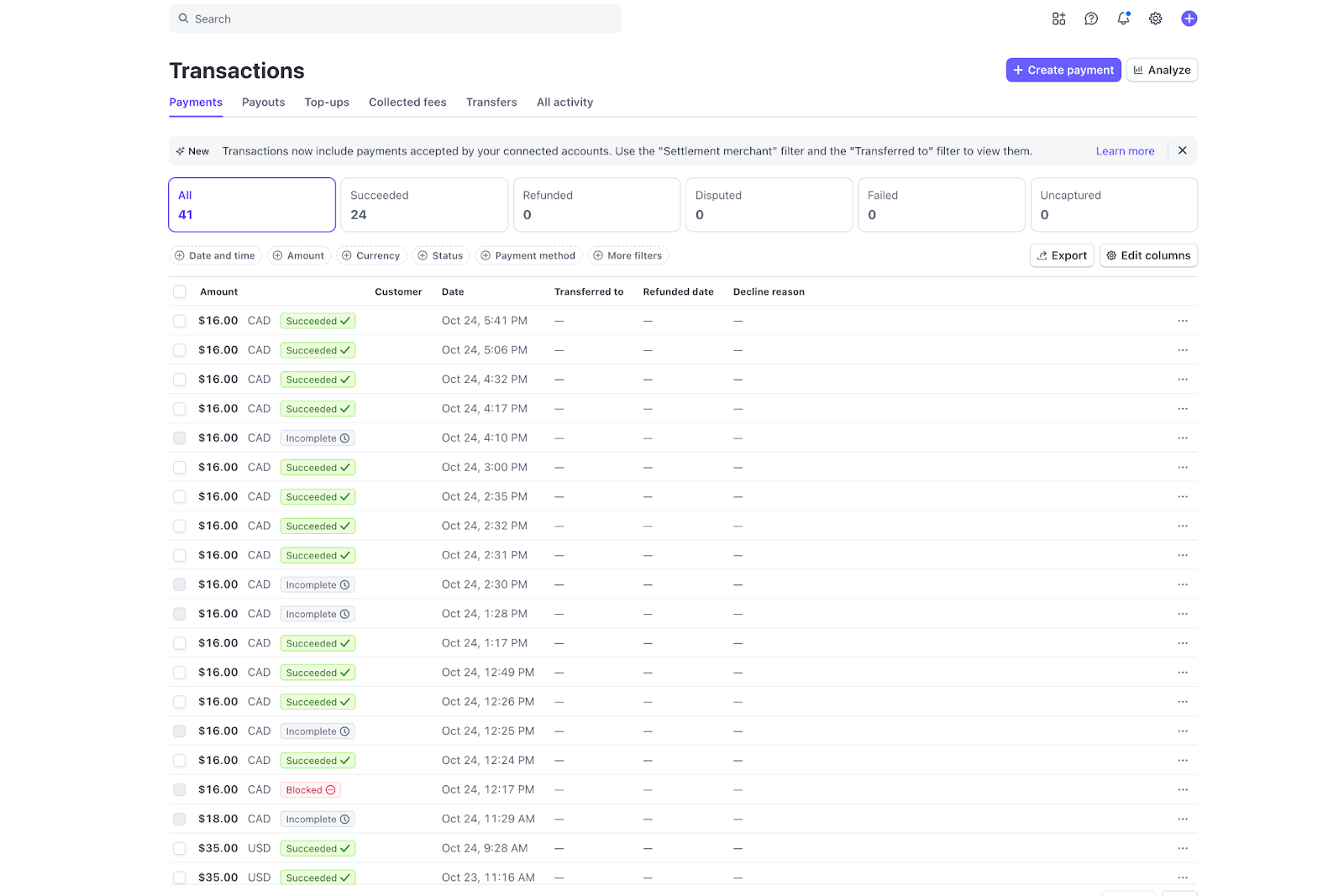
Two Months, Two People: Check Out the Rulo AI Tech Stack
Two months. That's how long it took to build Rulo — a fully working mobile and web app. We've worked with engineering teams of 20+ people that would've needed at least six months to ship a product like this. And while we'd love to claim it's because of our incredible engineering chops, the truth is we have modern tools to thank.
We wanted to share a free guide that breaks down the exact tools we used to build Rulo, in case it helps you finally build that product you've been thinking about. Or if you have a friend who won't stop pitching their "next big thing," maybe this will be what gets them to start.
Check out the Rulo AI tech stack
If you're building something, we guarantee you there's an AI setup that can help you get the job done.
Frequently Asked Questions
Continue Reading

Wait, What's the Plan? How AI Plan Mode Changes Development
Learn how Plan Mode in Claude Code gives you visibility and control over AI-driven development. See the plan before execution, apply human judgment, and build better projects with AI as your teacher.
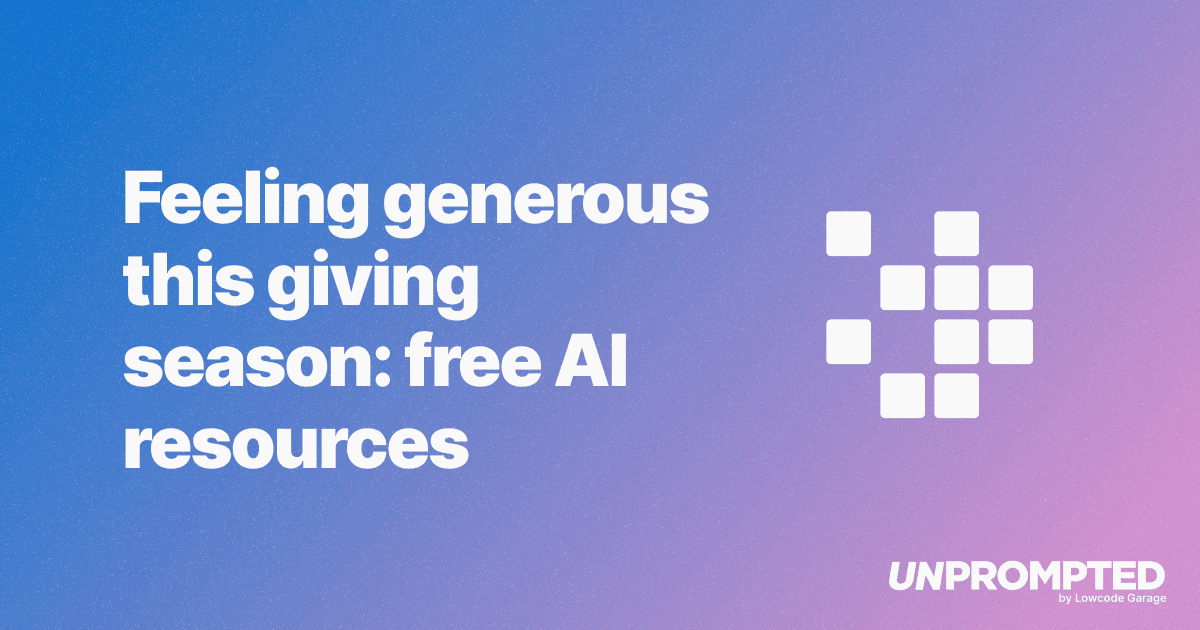
Feeling Generous This Giving Season: Free AI Resources
Discover how nonprofits and startups leverage AI to punch above their weight. Learn real examples and get access to our free Resource Hub for Nonprofits with tools and guides for the giving season.

The New AI Marketing Machine
Discover how AI is transforming marketing from a labyrinth of specialists into accessible, efficient tools. Learn about the 4 new pillars of marketing in the age of AI and what you should never do with ChatGPT.